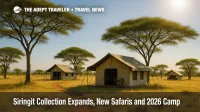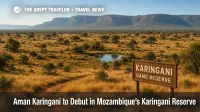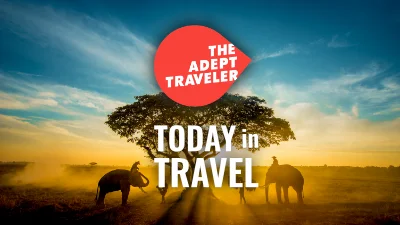Safari

Travel is this amazing thing, right? It's not just about the places you go, but the mindset you slip into as soon as you're out of your comfort zone. In the realm of travel, nothing feels quite as adventurous—or as wildly unpredictable—as a safari. The idea of a safari, to some, might bring to mind images of wide-open savannas, African wildlife, and khaki-clad explorers. And honestly, that classic image has a lot of truth to it. But what if we dig a little deeper into what a safari really means today? It's a word that can conjure nearly endless possibilities, each more intriguing than the last.
The Unexpectedness of Safari Travel
There's something fundamentally thrilling about the unpredictability of a safari. Picture this: you're sitting in an open-roof vehicle, the sun beginning its proud ascent into the African sky, and suddenly, a lioness leaps onto the path with remarkable grace. Those moments—when nature happens right in front of you—that's the unexpectedness that safari travel promises. It's curious how, when you think of safaris, both a sense of tranquility and thrill exist simultaneously. It makes you ponder, what draws us to this dichotomy?
Let me veer off for a second here. Isn't it funny how, sometimes, we crave predictability in life, yet here we are, chasing the complete opposite when we pack our bags for a safari? Come to think of it, maybe it's because we've settled comfort elsewhere—at home, in our jobs—and what we really seek is a jar of spontaneity.
Safari as a Journey, Not Just a Destination
When discussing travel experiences, we often zero in on the destination. But with safari travel, the journey itself becomes even more significant, perhaps. You engage with the environment in a way that feels less like observing and more like participating. You might find yourself traversing landscapes that seem primal, as though they've been untouched by time. It's a sensation that's hard to articulate without coming across as overly poetic, yet it's there, clear as day.
A safari is an immersive experience, not merely a stop on a travel itinerary. The wind rustling the trees, the call of distant wildlife, even the slight sway of the jeep—these elements fuse together to craft an experience that is profoundly transportive. It's this very immersion that sets apart a safari from the usual touristy excursions.
Actually, if we take a step back, isn’t that what all meaningful travel is about? To feel a sense of place so viscerally that it imprints itself on you? A safari achieves this almost effortlessly. Or does it? It might be more complex—a well-crafted orchestration of timing, locale, and culture.
The Evolution of the Safari Experience
Modern safaris have evolved. They're no longer just about the Big Five or treks through the jungle, though these elements are still central. They embrace a holistic approach that encompasses the local cultures and ecosystems. Many safari operators are pivoting towards sustainable practices, ensuring that the environments we so eagerly explore remain thriving sanctuaries—forever, if we’re lucky.
Yet sometimes I wonder, are these efforts a bit of a paradox? We travel to these remote corners of the world, invariably leaving our footprints, and then work to preserve them simultaneously. This irony isn't lost on me, and it’s something worth musing over. At what point does our presence shift from admiration to intrusion?
Safari travel today is also about education and awareness. Your guides might not only ensure your safety but enrich your understanding of every creature, every plant you encounter. It's about providing context to the tapestry of life you're witnessing. And it's not just about showcasing animals in their raw beauty but also the challenges they face due to shifting climates and human encroachment. Perhaps the modern safari is as much about understanding our place in the world as it is about watching the world itself.
A Personal Reflection on the Nature of Safaris
I imagine it here, between the dusty trails and the endless horizon, is where some find a clearer reflection of themselves. It might seem cliché or overly introspective, but there’s an undeniable intimacy to be found in these wide-open spaces. The silence feels absolute, yet your mind never stops humming. It’s through this quietude that new thoughts often find their way to the surface.
There’s a rawness to it all—a raw beauty but also a raw humanity. Here I am, in a small corner of the world, a spectator of life that follows instincts and instincts alone. While I think I’m escaping the whirlwind of daily life, I’m just diving into another kind, wrapped in nature’s own securities and uncertainties.
It’s tough to explain without sounding pretentious or hollower than intended. The magic of a safari seems tied not just to the experience itself, but to the narrative you craft in your mind about that experience. Perhaps that's why every safari feels different. How your friends narrate their safari tales won’t—can’t—feel the same as yours. So, maybe that diversity of narrative is what we should cherish.
Final Thoughts—or Not
So, safari travel is more than just a journey across landscapes and animal encounters. It's an exploration of nature, self, and society. Its multifaceted nature makes it incredibly difficult to pin down singularly. Is it an adventure? Yes. Is it a lesson in humility, perhaps patience? Absolutely.
The more I think about it, the less singular it becomes, and probably, that's the point. As I haphazardly type my thoughts out here, pauses included, I realize that it's this very fuzziness that makes safaris infinitely intriguing. They force us to ponder our curiosities just as much as they provide answers to them.
Heck, as I wrap up these stray thoughts, I find that even the act of trying to find an endpoint feels a bit counterintuitive. Because, much like a safari, the lingering questions are just as important as the scene in front of us. And that’s what makes travel endlessly fascinating.
Wild Wakati Camp Serengeti Safari Camp Opens

Kruger Flood Closures Expand, Gates and Roads Limited

Tauck South Africa safari adds 9-day 2027 trip

Rift Valley Fever Notice For Mauritania, Senegal

New Routes Boost Southern Africa Safari Flight Links

East Africa Safari Camps Join Hyatt Points Network

Security Risks Sahel And West Africa Overland Travel

Tanzania Protests December 9 Threaten Travel

Tanzania Level 3 Advisory Raises Safari Risk

Tanzania Unrest, What Travelers Should Do Now

Siringit Collection expands, new safaris and 2026 camp

Ritz-Carlton opens first safari camp in Kenya's Masai Mara

Aman Karingani to debut in Mozambique's Karingani Reserve

Tacugama Chimp Sanctuary Shuts in Protest of Logging

Mozambique Lowers Advisory, but Northern Hotspots Persist

Lemala Opens Osonjoi Lodge on Ngorongoro Rim

Contiki Adds Four Youth Focused Safaris Across Africa

Africa Emerges as Top Destination for Adventure Tourism

Seabourn's New Luxury Land Excursions for Africa Voyage

Seabourn's Grand Africa Voyage: A 90-Day Adventure Around the Continent

Discover the Ultimate Luxury Cruise in Africa, Vegas Hotel Transformation & Juneau Cruise Control

Travel News: Disabled Travel, Safari's, and Australian Cruises

Travel News: Jamaica, Abercrombie & Kent, and the Spirit - Frontier - JetBlue Merger

